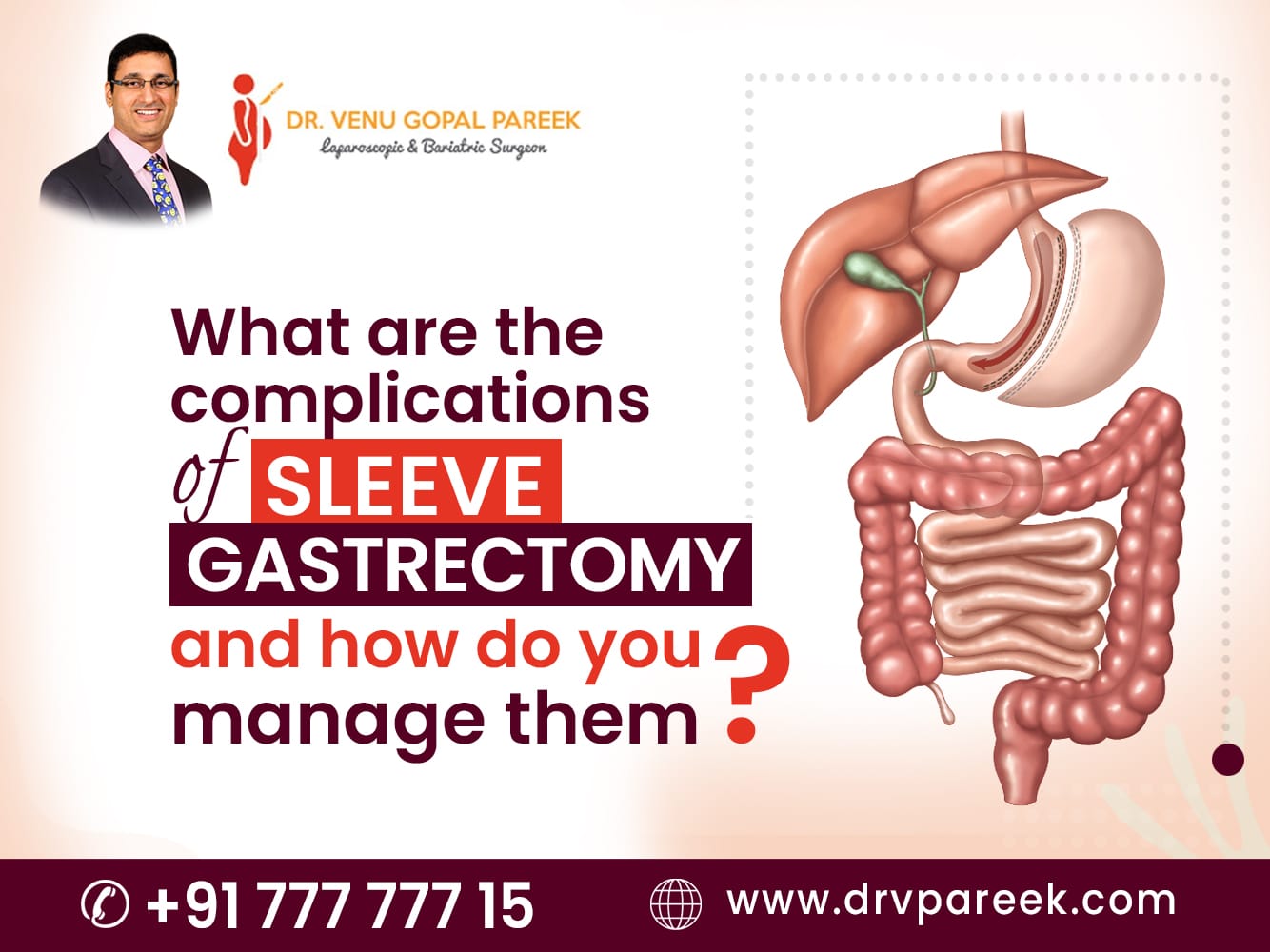
What are the complications of sleeve gastrectomy, and how do you manage them?
With the culture of fast food and sedentary lifestyles, there is no denying that more and more people are gaining unhealthy weight. Obesity affects not only physical appearance; it almost affects every aspect of an obese person’s health, from the reproductive system to respiratory function. It increases the risk of developing many life-diminishing diseases like type 2 diabetes, cardiac conditions, high blood pressure, etc.
Diet and exercise are popularly known options for losing extra weight. But what if you don’t lose weight even after doing regular exercise and following a proper diet plan? Bariatric surgery is the next best and final solution for losing extra weight. There are different types of bariatric procedures, and sleeve gastrectomy, or gastric sleeve surgery, is one of the best options for many obese people.
What is a sleeve gastrectomy?
Sleeve gastrectomy, also known as gastric sleeve or vertical sleeve gastrectomy, is a bariatric procedure (weight-loss surgery). This can be carried out laparoscopically, where small instruments are inserted into your abdomen through small incisions. During this procedure, nearly 75%-80% of the stomach is separated, and a small part of the stomach about the size and shape of a banana is left intact.
The primary purpose of this procedure is to limit your stomach size, which in turn reduces the quantity of food you consume. In addition, bariatric procedures trigger hormonal changes that aid in weight loss and also help to relieve certain conditions related to being overweight like diabetes, heart disease, etc.
Advantages of Gastric Sleeve Surgery
- Improves overall quality of your life
- Within a year of surgery, you can expect to lose 60%-70% of your excess weight.
- Remission or improvement of many other health conditions associated with obesity, such as type 2 diabetes, hypertension, heart problems, obstructive sleep apnea, infertility, fatty liver disease, osteoarthritis, hyperlipidemia, and stroke
- Decreases your desire to eat, especially unhealthy food.
- Decreases the production of hunger hormones, which reduces your hunger sensation.
Complications and risks related to gastric sleeve surgery and their management
Over the past decade, surgical techniques have improved a lot, and surgeons have gained immense experience, which has made gastric sleeve surgery a safe bariatric procedure. However, any major surgical procedure will have some complications and risks that may occur during and after the procedure, but they can be managed. Dehydration, food intolerances, and malnutrition are the most common risks associated with gastric sleeve surgery:
The following are the potential complications associated with gastric sleeve surgery.
Staple line leakage — This is a rare complication observed within the first week after gastric sleeve surgery and is caused when the stable line opens. However, the leaks can be sealed off with an endoscopic procedure.
Stricture/stenosis — Another rare complication caused by the narrowing of the stomach after surgery. Most of the time, these complications can be treated with dilators.
Bleeding — In case of excessive bleeding after a sleeve gastrostomy procedure, consult your surgeon immediately because it is a serious complication that needs prompt medical attention.
Peritonitis — The membrane lining the abdomen becomes inflamed, causing infection.
Heart Burn — Gastritis is one of the main causes of heartburn. The information about heat burn in bariatric surgery is not consistent. However, many patients who had heartburn problems prior to surgery reported that their symptoms improved after surgery due to weight loss. If the patient develops heartburn after surgery, it can be treated with OTC anti-acid medications.
Blood clots — It is a common problem after any major surgical operation, and they can be managed with medication.
Nutrient or vitamin deficiency — As the procedure makes you eat less food, deficiency of nutrients and other minerals is common. However, if you stick to the doctor’s diet, you will be able to overcome this.
Regaining lost weight — Regaining weight slightly after a few years is one of the most common complications among all bariatric procedures. After gastric sleeve surgery, only 10-20% of patients are observed to gain significant weight after 2 years following surgery. However, the majority of patients are able to maintain their weight loss by following a strict diet plan and regular exercise routine.
Hiatal hernia, gastroesophageal reflux disease (GERD), and gallstones are late complications observed after a sleeve gastrectomy procedure.
Nausea or vomiting, pain in the abdominal area, swallowing problems, or feeling like food is stuck are common warning signs of these complications. If you observe any of the above symptoms, consult your surgeon right away. For more detailed information about bariatric surgery, consult Dr. Venugopal Pareek, one of the best bariatric surgeons in Hyderabad. He has more than 18 years of experience as a weight loss surgeon in Hyderabad. Call +91 91-777-77715 and talk to the surgeon if you are looking for the best weight loss solutions.







